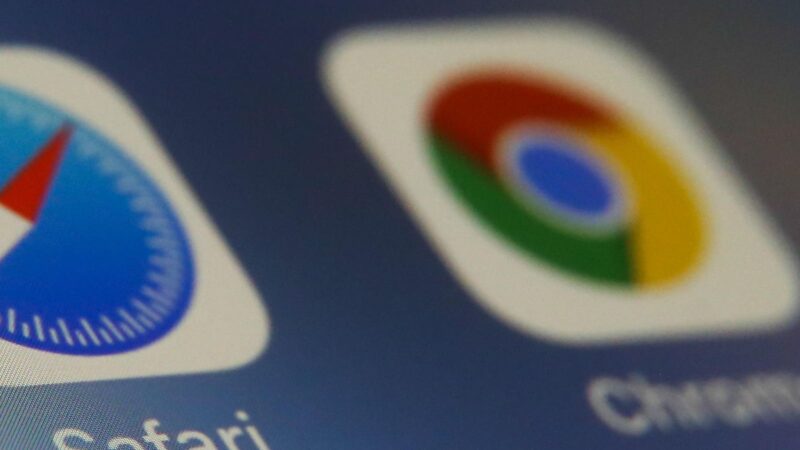Do you really need to quit Chrome?
NurPhoto via Getty Images
Apple’s warning is clear — stop using Google Chrome. The world’s most popular browser is as dominant on mobiles as it is PCs. And right now it’s surging, stealing market share from Apple. But Apple is fighting back.
“Switch to a browser that protects your privacy,” Apple says. “Safari includes state-of-the-art features that defend you against cross-site tracking, hides your IP address from known trackers, and more. Unlike Chrome, Safari truly helps protect your privacy.”
Microsoft is doing the same, warning Windows users to stop using Chrome, interrupting installs with ads for Edge, pushing its “browsing securely” alternative as “the same technology as Chrome, with the added trust of Microsoft.” But when it comes to market share, Edge is an also ran. Not so Safari, the default on most — but not all — iPhones.
And Apple goes further. There’s a checklist. Safari versus Chrome. This covers tracking cookies, URL trackers, IP masking, malicious extension protection and blocking known trackers. Safari scores all ticks, Chrome scores none. Again, it’s the same playbook as Microsoft’s, which has its own Edge versus Chrome checklist.
Why you should stop using Google Chrome.
Apple
What isn’t covered in Apple’s checklist is digital fingerprinting. The secretive device tracking Google brought back from the dead this year, having banned it on privacy grounds. There’s no way to switch off this silent tracking, which collates multiple device characteristics into a unique fingerprint to track you across the web.
But Apple has found a way to stop it working — at least to an extent. Safari’s new “Advanced Tracking and Fingerprinting Protection” has been on by default for private browsing for a while. With iOS 26 it’s now on by default for all browsing.
This throws junk data at fingerprint trackers when they’re detected, making it difficult to identify your own device, to separate the wheat from the chaff. This works in Safari, but if you use Chrome on your iPhone, you’re not protected in the same way.
Last year, Apple parodied Google’s now failed FLoC (federated learning of cohorts — its first Privacy Sandbox initiative) with “Flock,” a play on Hitchcock’s “The Birds.” The video portrayed Safari keeping users safe from other browsers that track their phones.
Apple didn’t mention Chrome in its “Flock” video. It didn’t need to. Between them, Chrome and Safari control 90% of the mobile browser market. Nothing else matters — yet. But Chrome is mentioned on Apple’s website, in this clear attack.
Despite Microsoft’s warning to Windows users and Apple’s warning to iPhone users, Chrome is surging. Users are not deterred. This is an issue for Apple as the browser market becomes the latest to brace for AI disruption. But the iPhone-maker is steadily raising the stakes, doubling down on its warnings, even though it’s not yet working.
I have reached out to Google for any comments on Apple’s warning.









